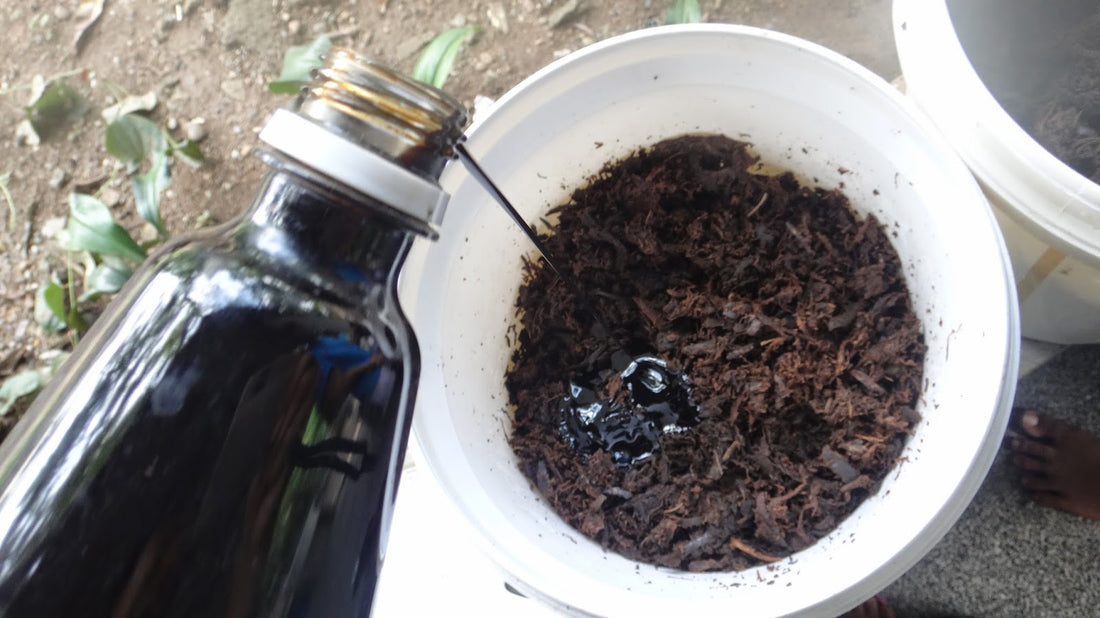This is a 3-part article series on the importance of standardized raw materials when manufacturing organic hydroponic nutrients. Part I focuses on the trouble that soilless farms tend to face when using manure and molasses as a nutrient input.
Breaking Down Manure and Molasses

In a nutshell, both raw materials are considered organic. With manure, it’s sourced from animal feces – predominantly chickens, cows, horses – and often times, additional items such as straw or strawdust from the animal’s bedding. Unfortunately, on occasion, urine will get mixed in with the manure. That being said, the organic matter that comes from manure is exceptionally high since animals have already broken down the anaerobic bacteria when digesting their food.

As for molasses, it comes from sugarcane, grapes, or sugar beets which are beaten together into a sugar mixture. Most people think of baked goods when they hear the word molasses as it’s often used as a food sweetener. However, farmers have also been using molasses for a while now, adding it to compost tea, as the sugar is a source of food to its microbes, responsible for further breaking down organic matter. Molassess is also used because of is its ability to chelate nutrients so that they are directly absorbed and used by the plant. It also has high levels of potassium, although a better option is to use kelp when needing to supplement with potassium. Molassess has been more widely used as a good substrate for soil.
The Risk for Soilless Farmers
Manure - With manure, soilless farms run a high risk of E.Coli contamination. While this example is focused on soil-based farming, it’s still very relevant. Over the last few years, the US has seen an outbreak of E.Coli outbreaks from the consumption of romaine lettuce. Only recently did the CDC as well as the US FDA announce that the third outbreak of an E.Coli strain was over. As a precautionary step, romaine lettuce samples will be collected by the FDA to ensure that any possible outbreaks are mitigated. The effects of E.Coli were so bad that there were even deaths as a result of the outbreak, hence these additional steps by the FDA. The source? Not the romaine lettuce, but actually due to cow manure that transferred either through physical handling, wind, water, or the soil. While soilless farms are less susceptible to this, the direct usage of manure in fertilizers for soilless farms opens up immense risks.
Molasses - The problem that farms may face when using molassess as a raw ingredient for their organic hydroponic nutrient is the tendency it has to contribute to foam buildup when not correctly preprocessed. This is due to the fact that it is feeding bacteria in a soilless farm’s water reservoir because it is not broken down the same way as it is in soil, which is an efficient method that nature has perfected. For farms that do decide to use molasses, it’s important to understand this: In many ways, it’s similar to a “fast food for bacteria and yeast” to multiply rapidly and thus accelerate fermentation. But if fed in such a way, this may multiply unwanted bacteria or yeast as well turn the water reservoir into a prime spot for bacteria to survive and thrive. Due to its viscosity, it also clogs pumps and can contribute to the development of biofilm due to it serving as a food source for bacteria and potential root-borne diseases.
"For farms that do decide to use molasses, it’s important to understand this: In many ways, it’s similar to a “fast food for bacteria and yeast” to multiply rapidly and thus accelerate fermentation. But if fed in such a way, this may multiply unwanted bacteria or yeast as well turn the water reservoir into a prime spot for bacteria to survive and thrive." |
Being Selective About the Raw Ingredients in A Farm’s Organic Hydroponic Nutrients
In Part II of this series, we will break down other raw ingredients that soilless farms should be mindful of when selecting their organic hydroponic nutrient. It’s important that farms ask as many questions as possible when purchasing, something that we’d be happy to help with at any point.

